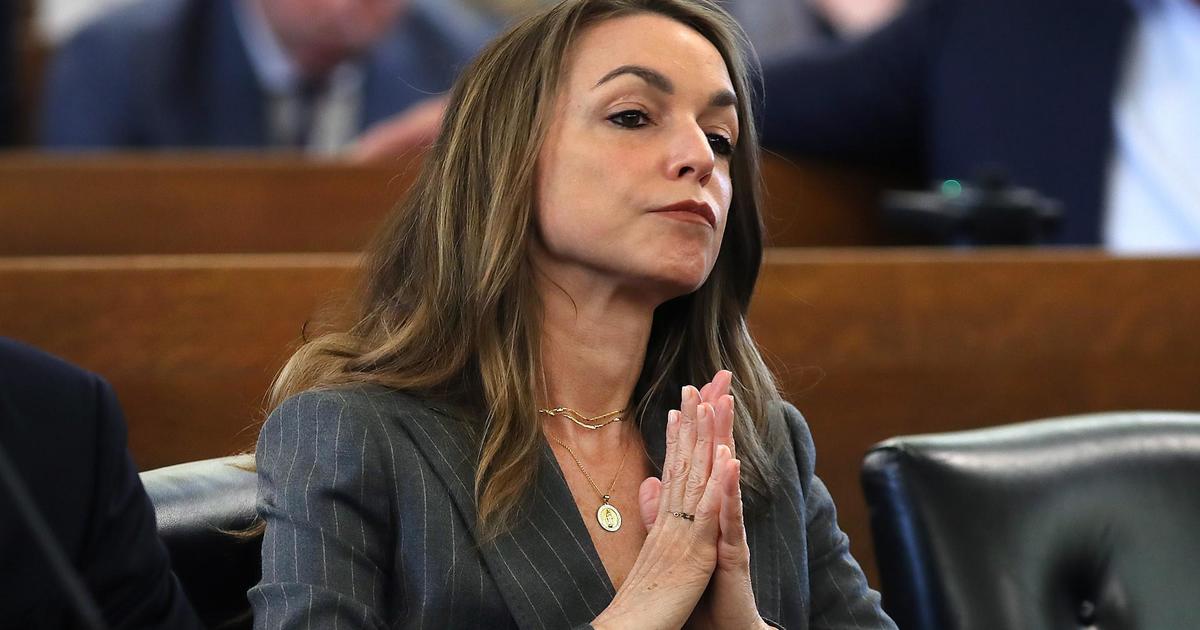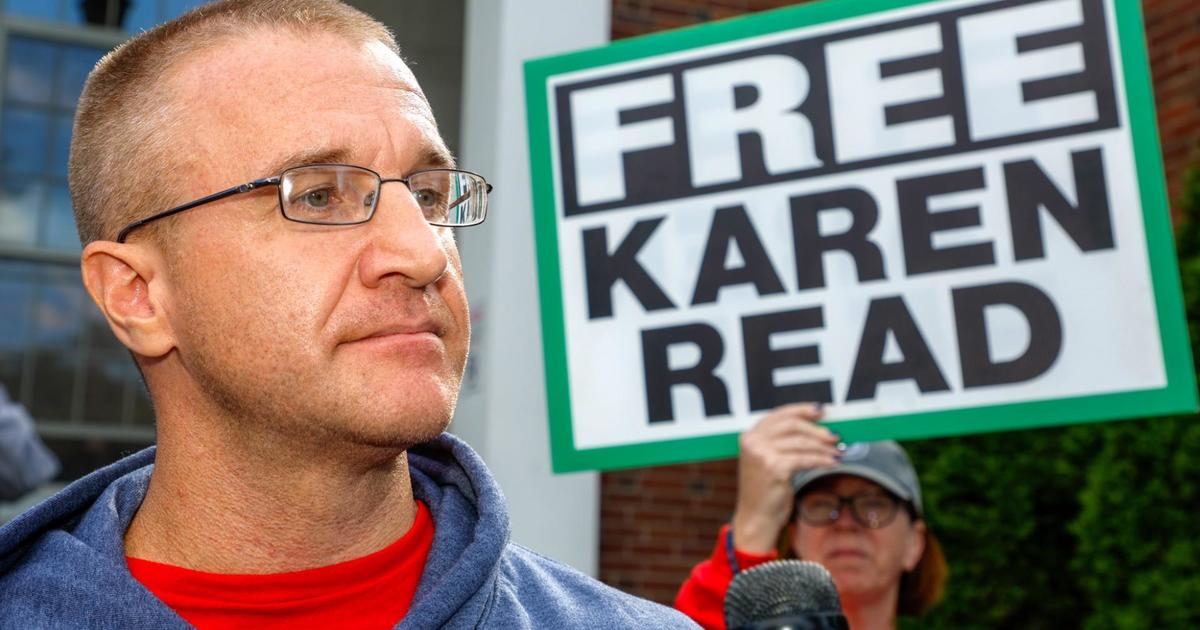Amid High Unemployment, Lawmakers Fail To Get Jobs Panel Off Ground
BOSTON (State House News Service) -- A jobs commission ordered almost two years ago by Gov. Deval Patrick and the Legislature to find ways to create and maintain jobs in Massachusetts has never met, causing some to view the panel as a missed opportunity during a period of high unemployment.
In interviews, stakeholders said it had taken them two years to name commission members and said they hoped to meet for the first time in January, more than 18 months after their initial reporting date. But loose ends remain. For instance, those involved in the panel could not provide a full list of its members.
Under a resolve approved Dec. 31, 2008, state officials coping with the effects of the recession were charged with creating a special commission "for the purpose of making an investigation and study relative to the economy in order to create and maintain quality jobs in the commonwealth".
WBZ Radio's Bernice Corpuz reports.
Podcast
Before and after the resolve's approval, Massachusetts and the rest of the nation were socked by record job losses and the nation is now experiencing a slow recovery from a deep recession.
An aide to commission co-chair Sen. Karen Spilka (D-Ashland) said the lawmakers in October extended the group's reporting deadline until June 2012, or three years after the commission's initial reporting date. Sarah Blodgett, chief of staff to Spilka, said the group was delayed because it took a long time to appoint all the commission members.
Co-chair Rep. John Scibak (D-South Hadley) did not return repeated phone calls.
The Legislature has been largely inactive since early August.
Rep. Alice Wolf (D-Cambridge), one of the original sponsors of the jobs commission legislation, also said it was a lengthy appointment process. It was only recently that all 17 members were chosen, she said.
"I think it is very timely, even though it took a long time to get it passed, and a long time to meet," Wolf said. "I think the purpose of it is to look at what the state can do to support jobs creation."
Sen. Bruce Tarr, a commission member, said meeting earlier should have been a priority.
"This is not very good," said Tarr (R-Gloucester). "I don't think it speaks well of this commission that it hasn't met. Clearly one of the number one priorities is job creation."
"It shouldn't have taken this long to appoint people," Tarr said. "This issue is going to be with us for some time. But it is unfortunate we missed the opportunity to address it earlier."
Podcast
WBZ News Radio's Carl Stevens talks with Sen. Bruce Tarr.
Rep. Paul Frost (R-Auburn) was appointed to the commission in July 2010 to replace Sen. Richard Ross, who was elected to the Senate. Frost said in light of the recession, it is surprising the commission has not met.
"You would have thought, at least over the last couple of years, with jobs being the number one issue facing the commonwealth, that we would have had some meetings. That this is something we would have wanted to work on," he said. "In all honesty, jobs certainly should be a number one priority." He criticized the Democratic leadership: "Maybe for the Democrats it seems to be campaign rhetoric, talking about jobs creation, rather than sitting down to talk to people in business community about how to create jobs," Frost said. "How come we can't get together and meet on something we all should be caring about, that is creating jobs?"
The new reporting deadline, June 2012, allows a whole legislative cycle to go by, Frost said.
"I would have thought this was something that had a little bit more energy behind it," Frost said. "We should be meeting now to finalize what we heard, what we discussed, so we could have some recommendations to go into the next legislative session."
Wolf said the commission will look for ways to support private industry so the state's economy can better weather any downturns.
John Regan, the executive vice president of government affairs for the Associated Industries of Massachusetts, said he was not surprised the commission has not met. He added that state lawmakers were working to spur economic development quickly during the recession. Regan pointed to health care cost containment legislation and an economic development law approved over the summer.
"The date when they were suppose to report was a pretty tight timeframe," Regan said. "At that time, there was an awful lot of stuff going on. At the end of 2009, the Legislature, clearly, was trying to do things to improve the state's economic climate. It appeared to be a pretty high priority."
Even though the commission will not report its findings until 2012, Regan said, it will be helpful. "Anytime we are talking about job creation and economic development that is a good thing," he said.
Another commission member, Aaron Tanaka, the executive director of Boston Workers' Alliance, said he feels not meeting yet was a "missed opportunity."
"I think it is a great opportunity to come up with new strategies for bringing jobs to Massachusetts," said Tanaka, who works with more than 700 unemployed people in Boston. "Obviously that should be at the top of everybody's priorities."
Alan Clayton-Matthews, a professor of economics and public policy at Northeastern University appointed to the commission by the governor, said he was disappointed the commission has not met yet.
"This is not an easy task," Clayton-Matthews said. "It is just not easy to turn an economic ship around. Any policy recommendations we come up with are really going to have a long-term impact and not be felt immediately."
The group was charged with creating lasting economic solutions like strengthening education and jobs creation, not "short-term fixes," Clayton-Matthews said.
"In the short-term, the best thing you can do is support those out of work," by extending unemployment benefits and job retraining, he said.
Gov. Patrick appointed four members: Tim Sullivan from the AFL-CIO, Aaron Tanaka from the Boston Workers' Alliance, Alan Clayton-Matthews from Northeastern University, and Eileen McAnneny from Associated Industries of Massachusetts. Senate President Therese Murray and House Speaker Robert DeLeo each appointed a co-chair and Tarr and Frost were appointed by Senate Minority Leader Richard Tisei and House Minority Leader Brad Jones. All nine Cabinet secretaries were charged with naming appointees. An economic affairs aide could not find information about the commission. Legislative aides contacted by the News Service were unable to produce a complete list of commission members.



